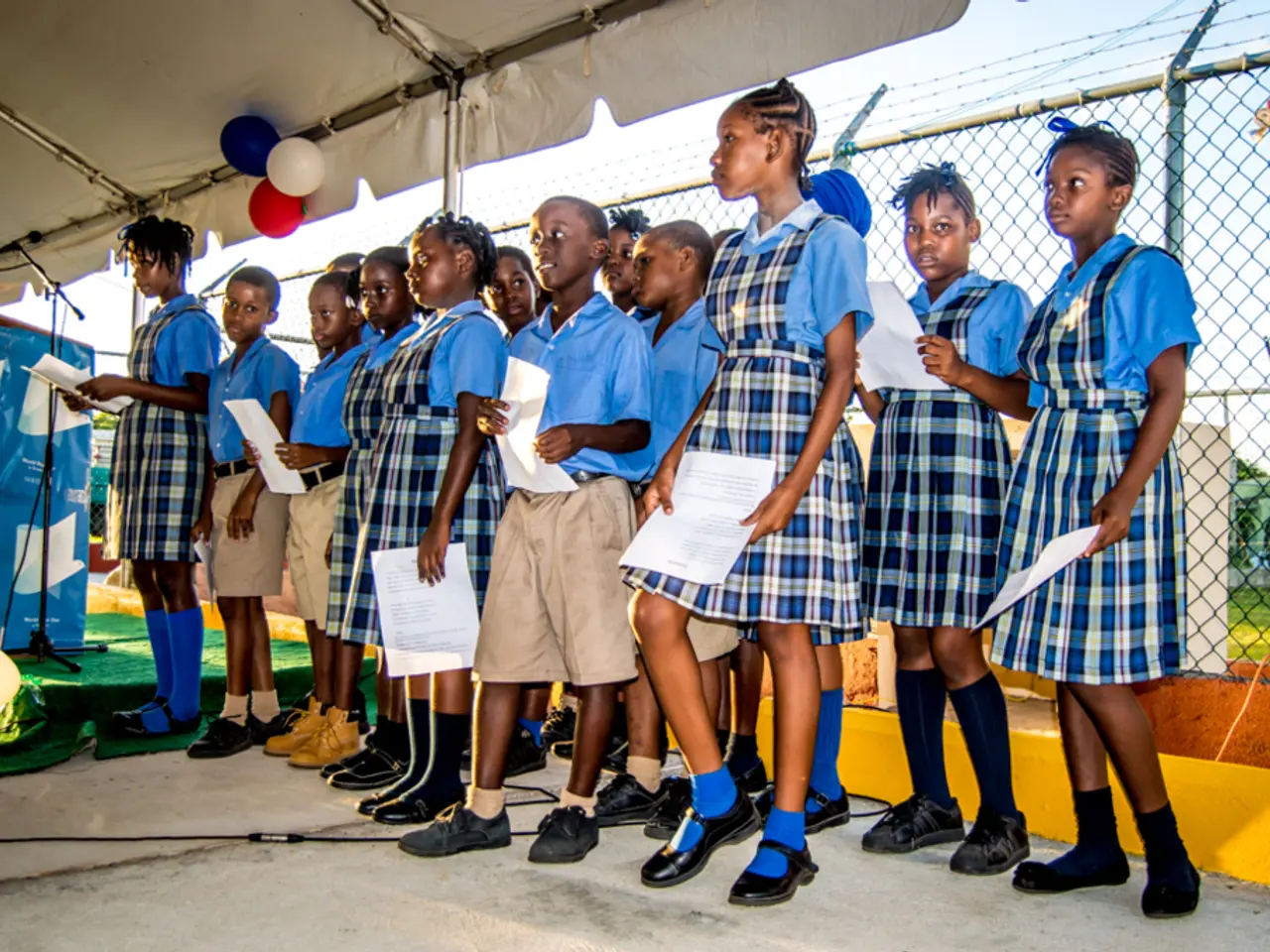Children Granted Freedom to Establish Boundaries
In a bid to equip young minds with the necessary tools to understand and navigate potential dangers, age-appropriate resources for discussing sexualized violence prevention are being implemented in elementary schools across the nation.
These resources, designed with developmentally appropriate instruction in mind, aim to educate young children about body safety, boundaries, and trusted adults in a manner they can comprehend. For instance, Ohio's state education guidelines mandate schools to provide such instruction annually for grades K through 6, with a focus on safe and supportive teaching materials devoid of abortion-related content.
Key points for elementary-age prevention education include teaching children about private parts and personal boundaries using simple, clear language, helping them recognise safe versus unsafe touches, informing them about trusted adults they can talk to if they feel uncomfortable, providing information on where to get help if needed, and ensuring the content is emotionally sensitive and does not involve fear tactics or graphic descriptions beyond what is age appropriate.
Programs such as those provided by the Barbara Sinatra Children’s Center Foundation's Fight Child Abuse include videos and curricula specifically designed for young children to understand personal safety in an accessible way. Similarly, Sandy Hook Promise offers violence prevention programming that includes age-specific lesson plans and activities across K-12, emphasising student empowerment and social emotional learning to foster safe school environments.
Schools often use curricula that fulfil legislative requirements, ensuring the lessons are developmentally appropriate and focus on prevention without overwhelming children with explicit details. For adults involved in education, Title IX programs provide training and policy frameworks to create safer school environments and respond to sexual harassment and misconduct.
In summary, age-appropriate resources for elementary students:
- Use developmentally suitable language and concepts (e.g., safe touch, private parts). - Focus on empowerment and education rather than fear. - Provide practical information on how to seek help. - Are often delivered through school-based programs vetted or recommended by education departments. - Examples include the Fight Child Abuse curriculum and Sandy Hook Promise’s age-appropriate lesson plans.
In Germany, initiatives like the "Because You're Valuable" project at Oßweil Primary School are taking place in several Ludwigsburg schools in the third and fourth grades. The project, which discussed topics such as "My Body", "Setting Boundaries", and "Knowing Helpful Places", emphasised the importance of strengthening children's self-determination in their bodies to help them protect themselves in situations of overreach.
It's crucial to address the issue of sexualized violence at an early age, as statistics show that sexualized violence can begin as early as a child's 11th year. Nico Blum, head of the youth department in the municipal education and family affairs department, underscores the urgency of addressing the issue. Ayke-Vanessa Böhmer, a sexual scientist, was a guest at the project and spoke with students about topics such as saying "No" to unwanted touch, even if one likes the person involved, and places where they don't want to be touched. Böhmer also made it clear that women can be potential perpetrators of sexualized violence.
Locations of sexualized violence are varied, with perpetrators often coming from the child's immediate environment, including male caregivers. On average, one to two children in every German school class have been or are currently victims of sexualized violence. Measures that strengthen children's self-determination in their bodies contribute to their ability to protect themselves in such situations.
For those seeking specific curricula, many state departments of education and organisations like the Barbara Sinatra Children's Center and Sandy Hook Promise offer free or widely accessible materials suitable for elementary students.
- The resources implemented in elementary schools aim to promote a better understanding of sexual health, health-and-wellness, and personal safety, including body safety, boundaries, and recognizing safe and trusted adults.
- In Germany, school programs like the "Because You're Valuable" project in Oßweil Primary School focus on mental-health topics such as self-determination and empowerment, educating children on how to protect themselves from sexualized violence.
- For individuals interested in curriculum resources for elementary-age prevention education, organizations such as the Barbara Sinatra Children’s Center and Sandy Hook Promise offer free or accessible materials in the areas of education-and-self-development and personal-growth.




